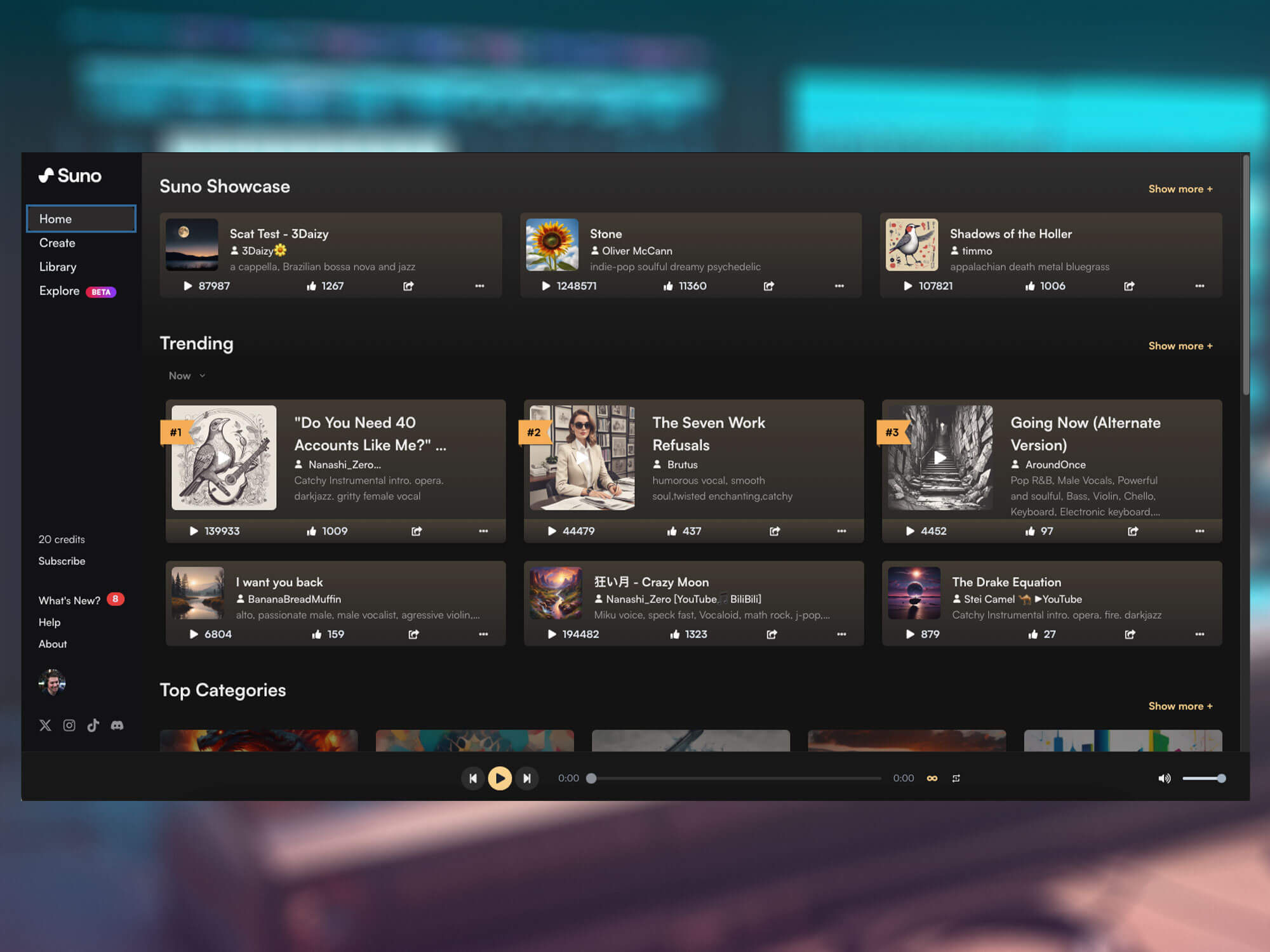Record labels sue AI music generators Suno and Udio alleging “unimaginable scales” of copyright infringement
The lawsuit is seeking damages in $150,000 for each infringed work.

[Update 24 Jun, 21:09 BST: Suno CEO Mikey Shulman provided a comment to Billboard.]
[Update 24 Jun, 21:26 BST: RIAA has provided MusicTech with a response to Shulman]
Universal Music Group, Sony Music Entertainment and Warner Records Inc have filed lawsuits today (24 June) against AI music platforms, Suno and Udio. The record labels have alleged copyright infringement of recorded music at “an almost unimaginable scale.”
Suno and Udio have become infamous in recent months for their music-generation capabilities. You can create entire songs using a single-word prompt if you so choose. However, suspicions have arisen about how these models can reproduce sounds and styles so accurately.
READ MORE: What does Suno AI mean for music producers and the music industry?
The Recording Industry Association of America (RIAA) is now leading lawsuits, reports Billboard, with Sony, Universal and Warner among the plaintiffs. The lawsuits, filed in the US courts, allege that Suno and Udio have unlawfully trained their generative AI models on the label’s recordings. The RIAA claims that this is “mass infringement of copyrighted sound recordings copied and exploited without permission by two multi-million-dollar music generation services.”
The plaintiffs are seeking damages of up to $150,000 for each piece of infringed work, according to Wired. The lawsuit is also seeking to stop the two AI companies from training on the label’s copyrighted songs.
RIAA adds that Suno and Udio’s generative music could “saturate the market with machine-generated content that will directly compete with, cheapen and ultimately drown out the genuine sound recordings on which [the services were] built.
“AI companies, like all other enterprises, must abide by the laws that protect human creativity and ingenuity,” continues the RIAA per MBW. “There is nothing that exempts AI technology from copyright law or that excuses AI companies from playing by the rules.”
Neither Suno or Udio have publicly stated how they trained their music platforms. However, the lawsuit alleges that the two companies are “attempting to hide the full scope of their infringement.”
Suno’s CEO, Mikey Shulman, offered a comment to Billboard in light of the lawsuit, saying: “Suno’s mission is to make it possible for everyone to make music. Our technology is transformative; it is designed to generate completely new outputs, not to memorise and regurgitate pre-existing content. That is why we don’t allow user prompts that reference specific artists.
“We would have been happy to explain this to the corporate record labels that filed this lawsuit (and in fact, we tried to do so), but instead of entertaining a good faith discussion, they’ve reverted to their old lawyer-led playbook. Suno is built for new music, new uses, and new musicians. We prize originality.”
An RIAA spokesperson provided a press statement to MusicTech in response to Shulman’s comments: “Suno continues to dodge the basic question: what sound recordings have they illegally copied? In an apparent attempt to deceive working artists, rightsholders, and the media about its technology, Suno refuses to address the fact that its service has literally been caught on tape – as part of the evidence in this case – doing what Mr. Shulman says his company doesn’t do: memorizing and regurgitating the art made by humans.
“Winners of the streaming era worked cooperatively with artists and rightsholders to properly license music. The losers did exactly what Suno and Udio are doing now.”
As reported by Billboard, RIAA CEO and chairman Mitch Glazier says of the lawsuits, “The music community has embraced AI and we are already partnering and collaborating with responsible developers to build sustainable AI tools centred on human creativity that put artists and songwriters in charge. But we can only succeed if developers are willing to work together with us. Unlicensed services like Suno and Udio that claim it’s ‘fair’ to copy an artist’s life’s work and exploit it for their own profit without consent or pay set back the promise of genuinely innovative AI for us all.”
RIAA Chief Legal Officer Ken Doroshow adds, “These are straightforward cases of copyright infringement involving unlicensed copying of sound recordings on a massive scale. Suno and Udio are attempting to hide the full scope of their infringement rather than putting their services on a sound and lawful footing. These lawsuits are necessary to reinforce the most basic rules of the road for the responsible, ethical, and lawful development of generative AI systems and to bring Suno’s and Udio’s blatant infringement to an end.”
Elsewhere today, fifty music technology companies including Splice, Beatport, Focusrite, Output, and, Native Instruments signed their support for the Roland- and UMG-backed Principles for Music Creation with AI. The guidelines encourage the responsible use of AI in music creation to “protect the essence of music — its human spirit”.
This is a developing story.